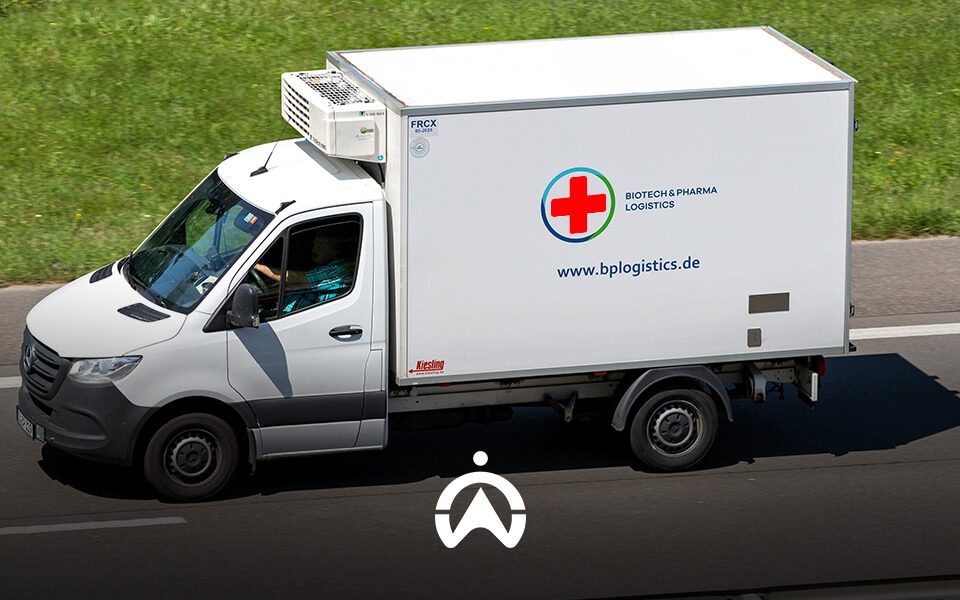How to Prevent Fuel Theft – 7 Instant Tips to Protect Your Fleet
Fuel theft is becoming increasingly worrisome for fleet managers and business owners, particularly in the face of ever-fluctuating fuel prices. It’s no secret that as diesel and petrol prices go up, the threat of fuel theft often follows.
Fortunately, there are several ways to protect your fleet against fuel theft and excessive fuel usage.
Ready to unpack valuable information and seven clear tips to help protect your fleet from fuel theft and excessive fuel usage?
In this article, you will:
- Understand the impact fuel theft has on your fleet’s operations and budget
- Familiarise yourself with potential fuel-theft signs within your fleet
- Gain insights into measures and tips to protect your fleet from fuel theft
- Explore the benefits of preventing fuel theft in your fleet business
- Learn how Cartrack’s solutions can help identify and prevent fuel theft
Understanding the Impact of Fuel Theft
Fuel theft can have a significant impact on businesses, especially those that rely on a fleet of vehicles for their operations. This can present several challenges for businesses, including financial losses that can impact the company’s overall profitability.
Additionally, it can lead to operational disruptions, causing unexpected delays in deliveries and vehicle downtime. This activity can result in damage to the vehicles themselves, adding more to fleet maintenance costs, with potential issues such as punctured fuel tanks or other forms of tampering.
Overall, fuel theft poses significant safety risks, especially if it involves meddling with vital components of the vehicle, potentially jeopardising the safety of drivers and other motorists if the driver is unaware of the potential vehicle damage through fuel theft and continues to operate their vehicle.
Signs of fuel theft
Thieves throughout South Africa have been actively seeking inventive methods to steal fuel from vehicles and filling stations alike. Surprisingly, most fuel theft incidents don’t occur by criminals. We’re not saying criminals don’t play a part but the majority of fuel theft frequently happens from the inside. Yes, you guessed it — your employees.
This is referred to as skimming, it involves employees syphoning a small amount of fuel from a vehicle’s tank for their personal use, thus saving money on their fuel expenses. Coincidentally, ‘skimming’ or ‘shimming’ can also mean a form of fuel card fraud.
So, how do you know that there’s fuel theft occurring in your business?
The signs of fuel theft can include:
- Sudden drops in fuel levels without reasonable explanation
- Gaps between fuel purchase records and actual usage
- Unexplained high fuel expenses
- Evidence of tampering with fuel tanks or petrol cap locks
- Unexpected changes in fuel consumption patterns
- Unexplained variations in vehicle routes
- Unauthorised vehicle activity during off-hours

7 profit-saving tips to protect your fleet from fuel theft and excessive fuel usage
Guarding your fleet against fuel theft and unnecessary fuel expenses is a key component in maintaining a successful operation. Implementing proactive measures can ensure the security of your fuel and the optimisation of your fuel resources.
With this in mind, here are 7 valuable tips to assist you in minimising fuel theft and wastage:
Tip 1: Improve your tracking system
Invest in an advanced tracking system like Cartrack’s to closely monitor your fuel consumption and track vehicle movements in real time. It will help you instantly identify any fuel usage irregularities, solve causing issues and save money.
Tip 2: Secure fuel tanks
Employ robust locking mechanisms on your fuel tanks to deter potential thieves. Anti-siphoning devices can further fortify your defences against unauthorised fuel access.
Tip 3: Regular audits
Conduct frequent audits to oversee fuel usage meticulously. Identifying any inconsistencies early on can help address potential fuel theft issues before they escalate.
Tip 4: Educate your drivers
Educate your drivers on fuel-efficient driving practices, including maintaining consistent speeds, minimising idling time, and planning optimal routes to reduce fuel consumption. Driver data like this can be easily accessible to managers through Cartrack’s driver behaviour reports, ensuring you have the tools you need to train drivers on responsible driving habits.
Tip 5: Utilise fuel monitoring software
Implement user-friendly fuel monitoring software integrated into your fleet management system. This technology enables you to monitor fuel levels and promptly detect any suspicious activities.
Tip 6: Install surveillance systems
Consider installing visible surveillance cameras at fueling stations and parking areas. Not only do they act as a deterrent to potential theft, but they also serve as concrete evidence in case of any attempted fuel-related crimes.
Tip 7: Establish clear guidelines
Develop and enforce transparent fuel usage policies within your organisation. Clearly define procedures for fuel card usage, refuelling protocols, and reporting any unusual activities, fostering a culture of accountability and responsibility.
Benefits of saving every litre of petrol
Every drop of stolen fuel is a loss that adds up over time. Fuel theft can result in increased vehicle repair costs, which are usually much more expensive than the stolen fuel itself.
By recognising the various benefits associated with preventing fuel theft, fleet managers can elevate the overall performance and safety of their operations.
Here’s what you can gain from solving your fuel theft problem:
Cost savings: Efficient fuel management helps reduce fuel wastage and prevents unauthorised fuel usage, resulting in significant cost savings over time.
Enhanced operational efficiency: By closely monitoring fuel usage, you can optimise routes, reduce idle time, and improve overall fleet efficiency, leading to better productivity and timely deliveries.
Maintenance optimisation: Effective fuel management can contribute to the proper maintenance of vehicles, ensuring that they operate at their optimal level and reducing the likelihood of unexpected breakdowns.
Improved accountability: Implementing measures to prevent fuel theft fosters a culture of accountability among drivers and employees, promoting responsible behaviour and discouraging fraudulent activities.
Regulatory compliance: By maintaining accurate fuel records and preventing fuel-related irregularities, you can ensure compliance with industry regulations and avoid potential legal issues.
Sustainability: Efficient fuel management practices contribute to a more sustainable approach to resource utilisation, reducing the environmental impact associated with excessive fuel consumption and wastage.
Enhanced fleet security: Preventing fuel theft not only protects your financial assets but also enhances the overall security of your fleet, ensuring the safety of both your vehicles and your drivers.
Managing your fuel effectively isn’t just about saving money; it’s about protecting your bottom line and keeping your fleet running smoothly. By implementing proper fuel management practices, you not only prevent fuel theft but also ensure that every drop of fuel is utilised efficiently.
Fuel theft trends
There are many tactics criminals use when stealing fuel from a vehicle, you might be familiar with syphoning, the traditional method of fuel theft where criminals use plastic tubing to syphon fuel from work vehicles and pour it into a petrol can for personal use, but you might not know the other popular methods of fuel theft such as:
- Fuel tank puncturing: There has been a growing trend of thieves puncturing fuel tanks, particularly in businesses with parked car fleets overnight. This technique allows for quicker fuel extraction in larger quantities but often results in considerable vehicle damage and costly repairs.
- Damaging fuel caps and fuel lines: Criminals might resort to breaking petrol caps or cutting fuel lines as another means of gaining access to the fuel within the tank.
- Misuse of fuel cards: Employees may sometimes swipe the business card for personal use or lend their fuel cards to friends or family resulting in unauthorised transactions. Tellers may also swipe fuel cards more than once reflecting in duplicate transactions and double the fuel costs.
- Cloning of fuel cards: Similar to credit card cloning, fuel cards can be duplicated, often going undetected by banks until it’s too late.
- Illegally accessing pipelines: In more complex scenarios, criminals may illegally tap into fuel pipelines to syphon off significant volumes of fuel. This is a technique commonly seen within the oil and fuel industry.

How Cartrack’s fleet management solutions can help
Cartrack Namibia is a global provider of data analytic solutions, specialising in mobile asset management, asset recovery, and workforce optimisation. Our comprehensive fleet management platform encompasses essential features including vehicle tracking, driver behaviour monitoring, cost breakdown analysis, and fuel management.
Our industry-leading fleet cost monitoring system — MiFleet is the perfect web-based tool that shows managers the exact running costs of their fleet. This data includes items such as toll fees, licence renewal dates, maintenance, and most importantly, fuel costs.
MiFleet automatically reviews all your fuel transactions, matches your fuel receipts with your vehicle’s telemetry data and highlights areas of possible fuel theft. Fleet managers can easily import fuel transactions, flag fuel risks and stay updated with all fuel costs, helping them prevent fuel cost wastages and save money.
Besides MiFleet, Cartrack Namibia also provides various fuel protection solutions that can assist in identifying and stopping fuel theft:
Fuel theft identification: Cartrack Namibia efficiently accesses trip reports with fuel sensor data, effectively validating any suspicions of fuel syphoning. This capability empowers you to take necessary action promptly and effectively.
Fuel consumption visibility: With Cartrack’s comprehensive fuel monitoring system, you can seamlessly track your fleet’s real-time fuel consumption. This clear visibility allows you to promptly identify sudden or unusual fuel level changes, triggering alerts for potential fuel theft or misuse.
Reducing fuel waste: Cartrack’s advanced fuel monitoring system provides detailed metrics on fuel consumption per kilometre travelled and per job completed for every driver and vehicle. These valuable insights help pinpoint areas that need attention, enabling you to proactively prevent fuel wastage.
Driver behaviour tracking: Cartrack’s state-of-the-art technology enables close monitoring of driver behaviour, including driving speed, abrupt braking, and prolonged idling, all contributing to fuel waste. By closely monitoring and addressing these behaviours, you can actively promote fuel-efficient driving practices and significantly reduce fuel consumption.
Fleet tracking: Leveraging Cartrack’s GPS tracking feature allows you to effortlessly keep tabs on your fleet vehicles’ precise positions. This critical function serves as a robust defence, instantly detecting any potential instances of unauthorised vehicle use, thus effectively combating fuel theft and unapproved usage.
Receive long-term fuel security and fleet protection with Cartrack Namibia
With Cartrack Namibia, you can proactively protect your valuable fuel resources, mitigate losses, and ensure that every drop of fuel is used optimally. Don’t let fuel theft drain your resources and disrupt your operations. Contact Cartrack Namibia today.




